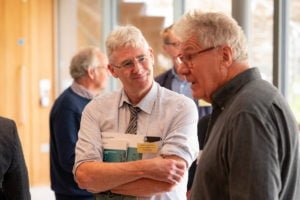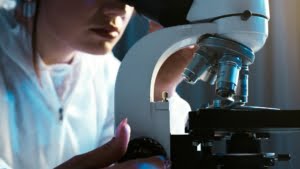Earlier this year, Professor Julian Blow stepped up from being a member of the Lister’s Scientific Advisory Committee (SAC) to its Chair, taking on the role from Professor John Iredale.
Julian is Professor of Chromosome Maintenance and Dean of the School of Life Sciences at the University of Dundee.
Why did Julian join us as a member of the SAC and step up to be its Chair?
“Grant panels are a lot of work, but there comes a stage where it becomes more and more important to give back to the community of scientists,” he says. He goes on to explain that the Fellowship aspect of winning the Lister Prize – meeting his peers and developing his networks – has been vitally important to his career.
“I’ve always been sympathetic and supportive of the Lister. Supporting it by being the Chair of the SAC is a wonderful way of doing that.”
This year, we received 96 applications for the Lister Prize Fellowship. These are now undergoing the first stage of review by SAC members.
“This is what we call the ‘triage’ stage, in which we allocate each application to the four most relevant members of the committee for their review,” explains Julian. “So that’s a total of 368 reviews to do and then, based on the reviews and the scores we take a certain number of applications through to the next stage.”
It is a lot of work for each member of the SAC, and Julian says he was careful not to downplay the amount of work involved: “We of course try to even out the load, but sometimes there’s expertise that goes unused and there’s other expertise which gets called on a lot.”

Every year, we receive proposals from more unusual subject areas, so SAC members must often review outside their area of expertise. “In some ways, that’s not a bad thing,” comments Julian, “but if you can get some more expertise on the Committee, that’s good to have. In recruiting new members – we usually have a turnover of a couple of members each year – we try to ‘fill in’ the gaps.”
After the initial review stage, it will be Julian’s role to make the ultimate decision about where that cut-off point lies – which applications go through to the next stage, and which do not. “As with all grant panels, there will be proposals at the extremes that I won’t need to spend too much time on them. But where you tend to spend the time is at the cut-off, where there is often diversity of scores or opinions.”
The applications selected are then sent out to external expert reviewers. When those comments come back in, we ask every member of the SAC to review every proposal along with the external reviewers’ comments. Based on the second round of reviews around ten of those will be invited for interview at the Royal Society, from which we will award about six Prizes.
This is a tricky task: “I’ve never experienced a situation where you don’t want to issue everyone a Prize,” reflects Julian. “There are always too many good people, so that’s difficult.”
He does not downplay the hard work that goes into reviewing and awarding the Prizes. “But when you look back on the process, there’s a great deal of satisfaction. Meeting the applicants at the interviews is hugely enjoyable. And the additional sweetness is that you know you’ll meet them again every year and get to follow their progress at the Annual Fellows Meeting.”
““The direct relationship between the SAC and the Prize awardees is where the Lister is different to any other grant funding panel.”
Like Julian, we look forward to announcing the next cohort of Lister Prize Fellows in 2023!



